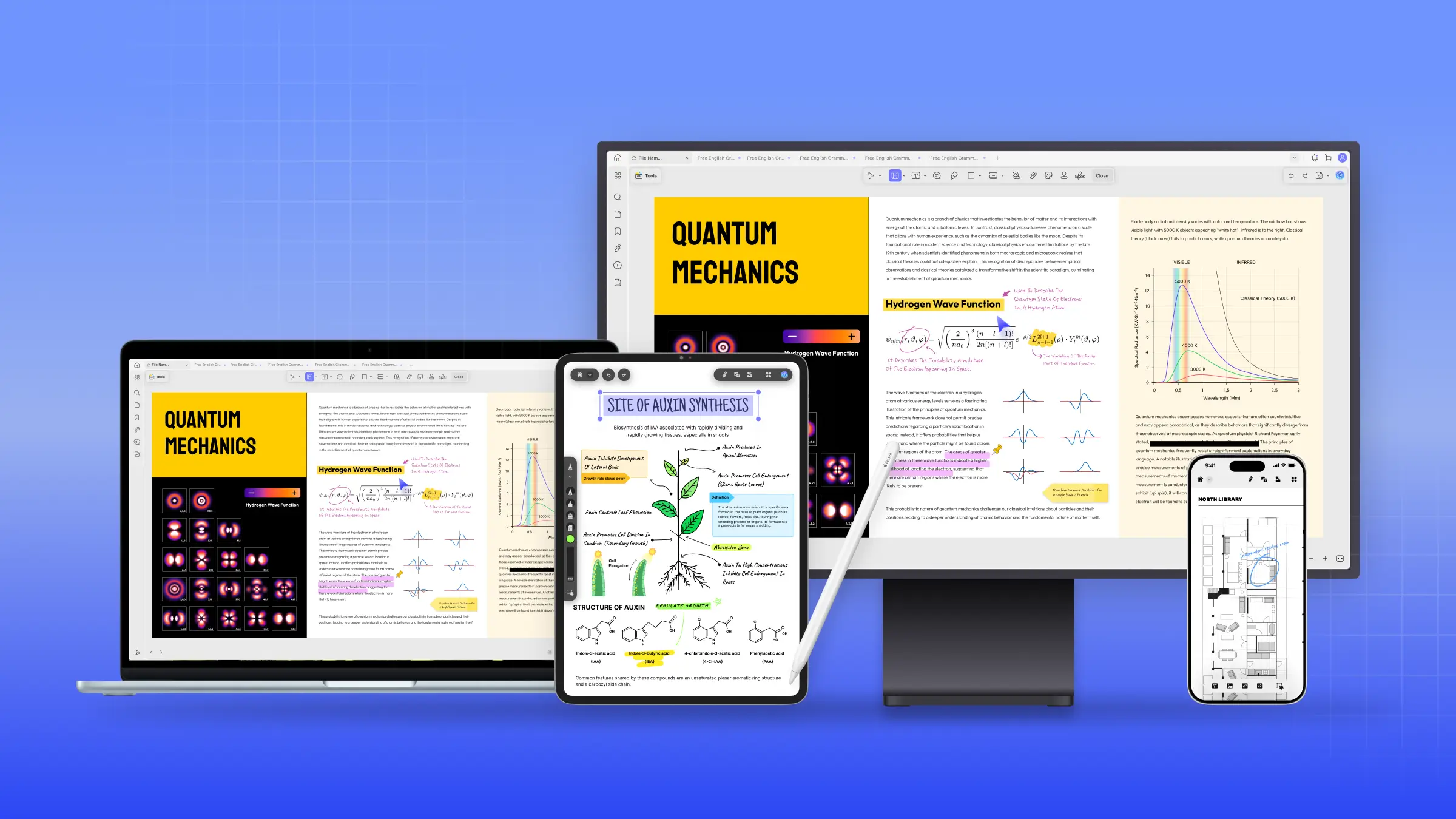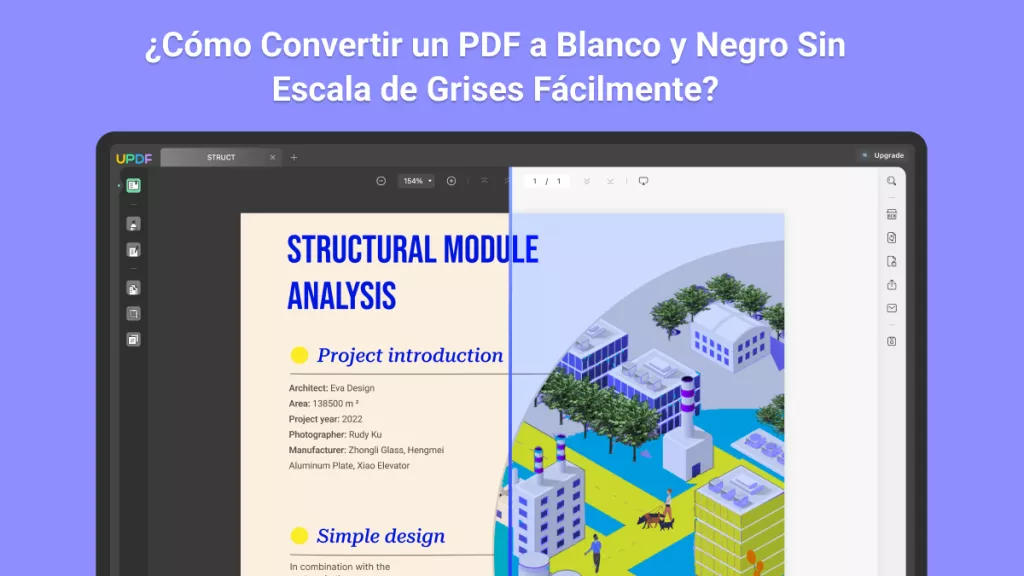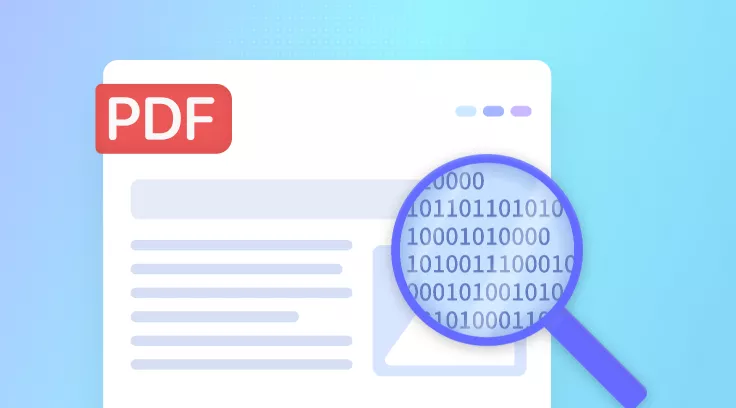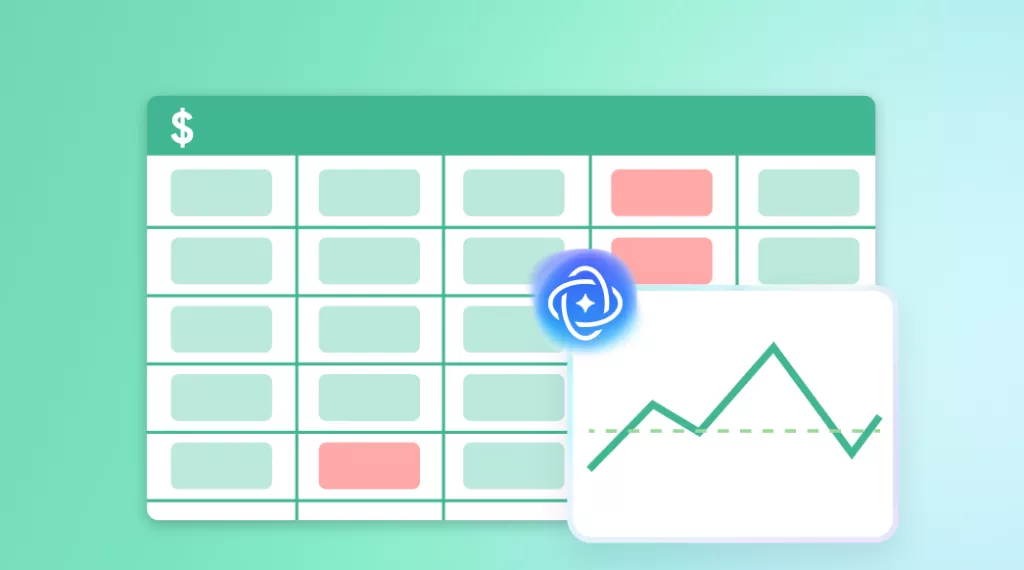En el mundo digital actual, casi todo el mundo se distrae, por lo que cada vez es más difícil concentrarse y mantenerse enfocado en nuestros estudios o trabajo. Mantener la concentración puede ser una batalla cuesta arriba con nuestros dispositivos cerca o los otros factores que compiten por nuestra atención. Sin embargo, la concentración es fundamental para el éxito en nuestra vida estudiantil y laboral.
Con eso en mente, este artículo señalará consejos efectivos para resolver cómo concentrarse mientras estudia consultas y mantenerse enfocado en el trabajo. Además, también destacaremos UPDF, la mejor herramienta de PDF para ayudarlo a aumentar la productividad a largo plazo.
Windows • macOS • iOS • Android 100% Seguro
Parte 1. ¿Qué es la concentración?
La concentración se puede describir en muchos términos según el contexto. En general, la concentración es el acto de enfocarse en una cosa o tarea específica mientras se ignoran las distracciones u otros factores competitivos. La concentración también es una habilidad necesaria en muchas otras áreas de la vida, incluida la educación y el trabajo. En educación, la concentración es la capacidad de prestar atención y concentrarse en una tarea.
Buenas habilidades de concentración pueden conducir a un mejor desempeño . De manera similar, en el lugar de trabajo, la capacidad de concentrarse en las tareas y minimizar las distracciones puede conducir a una mayor productividad y un mejor desempeño laboral. En general, la concentración implica prestar toda la atención a algo y mantener a raya las distracciones.
Tanto si es químico, meditador, estudiante o empleado, establecer fuertes habilidades de concentración puede ser beneficioso para lograr sus metas y mejorar su calidad de vida.
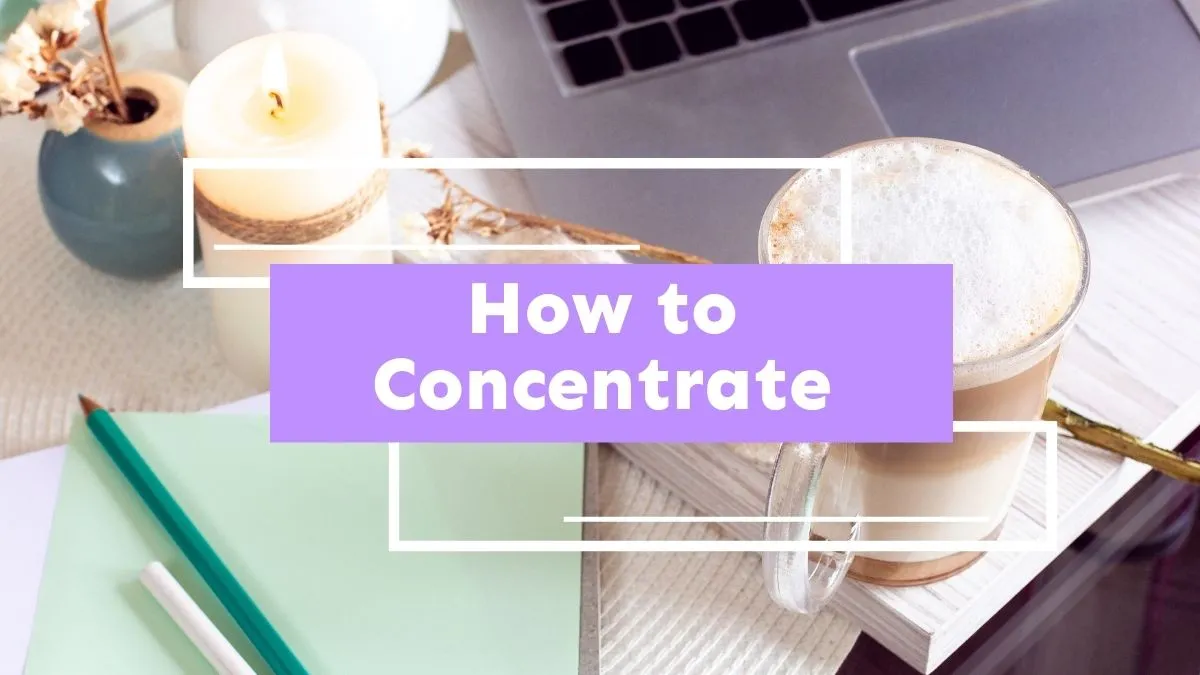
Parte 2. ¿Por qué no puedo concentrarme?
La concentración es muy útil para ayudarte a mantener el equilibrio entre el trabajo y la vida. Si llega alguna carencia, tu trabajo y estudio se ven muy afectados. Incluso tus fines de semana se arruinan cuando sigues pensando en tu rutina de trabajo y administrando las tareas.
Siempre que piense en cómo mantenerse concentrado en el trabajo la próxima vez, tenga en cuenta estas diversas razones que podrían dificultarle la concentración. He aquí algunas posibilidades:
- Dormir lo suficiente puede facilitar la concentración. Asegúrese de dormir al menos 7-8 horas cada noche, como se recomienda.
- El estrés y la ansiedad son dos distracciones importantes en la vida de uno, lo que dificulta concentrarse en cualquier otra cosa porque lo mantiene activado.
- Tratar de manejar varias cosas simultáneamente a través de la multitarea puede hacer que sea difícil concentrarse en una cosa. Su enfoque se desvía en muchas partes.
- Comer una dieta sana y equilibrada puede ayudar a aumentar el enfoque y la concentración. Asegúrese de comer muchas frutas, verduras, proteínas y multivitaminas.
- Los factores externos como el ruido, la música alta, las interrupciones o un lugar de trabajo o estudio incómodo también pueden dificultar la concentración.
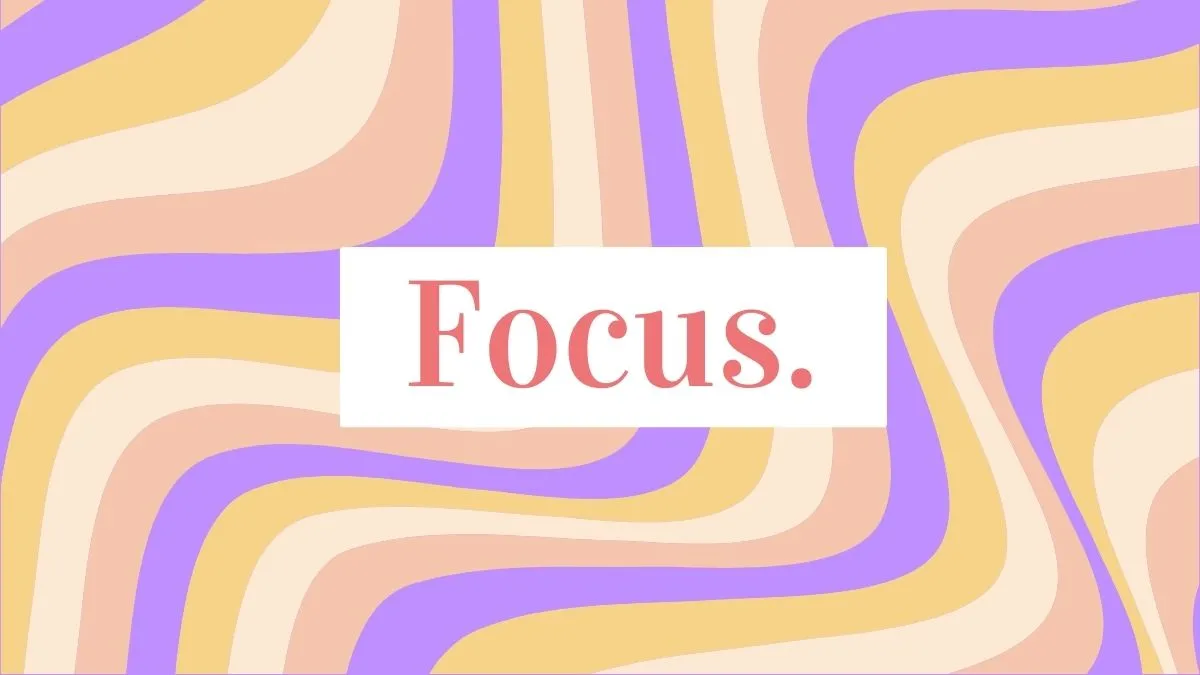
Parte 3. Los factores que empañan tu concentración
Todo el mundo se enfrenta a esos días en los que es difícil manejar sus estudios y su vida laboral porque su concentración está nublada. Debe estar preguntándose cómo concentrarse en el trabajo sin distraerse o empañarse. Bueno, cuando lo miramos, hay innumerables factores que nublan el enfoque, pero enumeraremos algunos que tienen un gran impacto en su enfoque.
- Recibir notificaciones y actualizaciones constantes del dispositivo, las redes sociales y otras tecnologías puede tomar tiempo para concentrarse en una tarea a la vez. Estas distracciones desvían su atención de su trabajo y empañan su mente.
- El hambre y la deshidratación hacen que tu cerebro se nuble y sea incapaz de obtener los nutrientes y la energía que necesita para funcionar correctamente. Esto puede conducir a una disminución de la concentración y el enfoque. Trate de mantenerse hidratado para evitar empañar la concentración.
- Cualquier molestia física, como el dolor o la incomodidad de una silla incómoda o el dolor de espalda debido a mantener una sola posición mientras estudia o trabaja, puede distraer y dificultar la concentración en su trabajo.
- Al igual que la fatiga física, la fatiga mental también puede conducir a una concentración disminuida y nublada. Varios factores, incluidas las largas horas de trabajo, pueden causarlo. Tomar descansos regulares y practicar la atención plena o la meditación puede ayudar a combatir este problema.
- Ciertos medicamentos también pueden afectar su capacidad de concentración. Por ejemplo, el TDAH puede ayudar a mejorar la concentración, pero otros medicamentos, como los antihistamínicos, pueden causar somnolencia y pensamientos confusos. Las condiciones médicas como la depresión y la ansiedad también pueden afectar la concentración.
Parte 4. ¿Cómo concentrarse mientras se estudia? ¿Cómo concentrarse en clase?
Concentrarse mientras se estudia y en clase es crucial para aprender los cursos y lograr el éxito académico. Sin embargo, cómo concentrarse en clase sigue siendo una pregunta. Las distracciones aleatorias pueden hacer que sea difícil mantenerse concentrado en la tarea en cuestión. A continuación se presentan 5 estrategias para ayudarte a concentrarte mientras estudias y en clase:
Crear un entorno de estudio enfocado
Su entorno de estudio puede afectar en gran medida su capacidad de concentración. Encuentre un espacio tranquilo y bien iluminado, libre de ruidos y desorden. Asegúrese de tener una silla y un escritorio cómodos para ayudarlo a mantener una buena postura y evitar molestias físicas. Esto te ayudará a mantener una vida equilibrada mientras eres estudiante.
Además, el entorno enfocado lo ayudará a resolver las consultas relacionadas con la clase con total concentración en caso de que surja alguna.
Use UPDF para anotar tareas
El método preferido y sugerido es descargar UPDF . Esta herramienta de edición de PDF lo ayuda a administrar sus documentos PDF y tareas de clase al anotarlos. Puede agregar comentarios a PDF , resaltar puntos clave, subrayar y tachar palabras, y agregar calcomanías y sellos para mantener sus tareas más productivas, lo que lo ayuda a concentrarse más en las tareas.
Windows • macOS • iOS • Android 100% Seguro
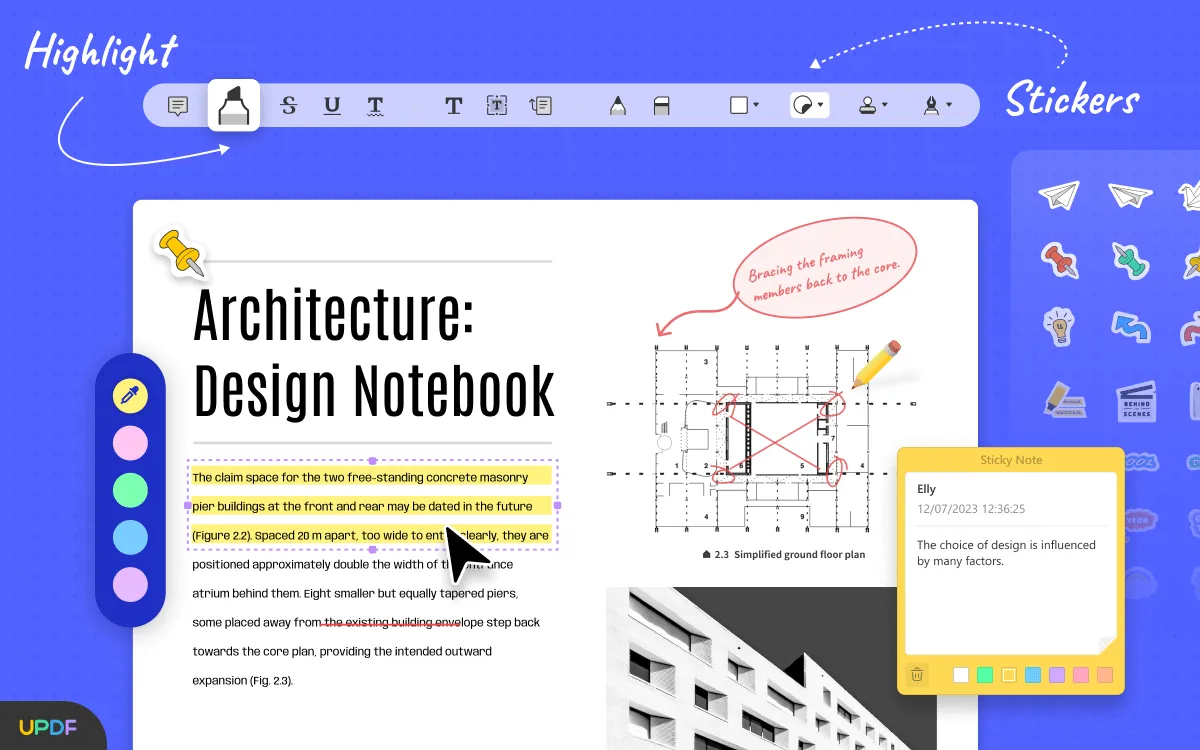
Además, tú como estudiante puedes beneficiarte de hasta un 58 % de descuento en educación . UPDF ofrece esto para que los estudiantes se concentren más mientras usan funciones premium.
Establecer un objetivo de estudio y adminístrelo como tareas
Establecer una meta clara para su sesión de estudio puede ayudarlo a mantenerse encaminado y evitar sentirse abrumado. Divide tu objetivo en tareas más pequeñas y manejables y priorízalas según tu importancia y fecha límite. Este enfoque puede ayudarlo a concentrarse en una tarea a la vez y evitar sentir que tiene demasiado que hacer.
Incluso en clase, trate de establecer una meta y concéntrese en lo que más importa. En su tiempo libre, intente explorar algunas cosas relacionadas con la clase y elimine el aburrimiento para mantenerse enfocado.
Usar la Técnica Pomodoro
La Técnica Pomodoro consiste en trabajar en una tarea durante un tiempo determinado, generalmente 25 minutos, y luego tomar un breve descanso. El tiempo de descanso es de 5 minutos, como se recomienda, pero puede configurarlo en consecuencia. Repita este ciclo varias veces, luego tome un descanso más largo. Este enfoque puede ayudarlo a mantenerse enfocado, completar tareas a tiempo y evitar el agotamiento.
También puede tomar descansos más largos si establece el tiempo de estudio mucho más. Los sonidos de alarma incorporados lo mantendrán actualizado. Incluso si tomas una siesta, te despertará.
Seguir premiándote a ti mismo
Mantenerse motivado durante el estudio requiere recompensas, que consisten en incentivos pequeños o mayores basados en su esfuerzo o logros. Por ejemplo, puedes recompensarte con chocolate después de terminar cada párrafo o ver un episodio de tu temporada favorita después de completar un tema.
Puede disfrutar de mayores recompensas cuando sienta que se ha esforzado mucho o ha completado tareas y exámenes. Mientras esté en clase, intente obtener una puntuación más alta en las pruebas y recompense sus logros en consecuencia para mantenerse motivado.
Parte 5. ¿Cómo concentrarse en el trabajo?
La concentración es uno de los factores más importantes a la hora de completar tu trabajo o alcanzar una meta. Es común distraerse fácilmente, lo que hace que concentrarse en el trabajo sea mucho más difícil en esta era moderna de las redes sociales. Sin embargo, hay formas de mejorar su concentración y aumentar su productividad que se describen a continuación:
Priorizar tus tareas
Es fácil sentirse abrumado por la cantidad de tareas que debe completar durante su trabajo, pero al priorizarlas, puede concentrarse primero en las más importantes. Comience por hacer una lista de tareas pendientes y clasifique cada tarea por nivel de importancia. Luego, trabaje en las tareas más urgentes o desafiantes, y luego pase a las más fáciles.
Tomar descansos
Los estudios demuestran que tomar descansos durante las horas de trabajo puede ayudar a mejorar la concentración. Cuando toma un descanso, su cerebro tiene tiempo para descansar y recargarse, lo que puede ayudarlo a trabajar de manera más eficiente. Trate de tomar descansos breves cada hora y use este tiempo para estirarse, caminar o hacer algo que no esté relacionado con el trabajo. Estos son nuestros consejos sobre cómo hacer que el tiempo pase más rápido en el trabajo .
Practicar la atención plena
Mindfulness es estar presente y totalmente comprometido en el entorno de trabajo. Al practicar la atención plena, puede entrenar su cerebro para que se concentre únicamente en el trabajo en lugar de distraerse con factores externos. Trate de tomar algunas respiraciones profundas antes de comenzar su trabajo o medite durante unos minutos para ayudar a preparar su mente.
Mantenerse organizado
Cuando su lugar de trabajo está desordenado y desorganizado, puede ser difícil concentrarse. Tómese el tiempo para ordenar y organizar su lugar de trabajo eliminando cosas innecesarias para que pueda concentrarse únicamente en la tarea. Esto incluye mantener tu escritorio limpio, organizar tus archivos y minimizar las distracciones visuales.
Utiliczar las mejores herramientas productivas
Las herramientas PDF pueden ser herramientas increíblemente productivas para profesionales en muchos campos diferentes. Ofrecen muchas funciones para ayudarlo a crear, editar y compartir documentos en varios formatos. Una de esas herramientas es UPDF, que lo ayuda a administrar su carga de trabajo de manera más productiva. Esta herramienta también le permite agregar protección con contraseña y encriptación a sus archivos de trabajo , asegurando que permanezcan seguros y confidenciales.
Windows • macOS • iOS • Android 100% Seguro
Esto le ayuda a concentrarse más en el trabajo en lugar de preocuparse por la seguridad de sus archivos. Además, a continuación se describen ciertas características clave que ofrece UPDF para ayudarlo a mantenerse más productivo:
- Procesamiento por lotes: UPDF le permite realizar procesamiento por lotes en varios archivos PDF simultáneamente, ahorrándole mucho tiempo y esfuerzo. Incluso con una gran carga de trabajo, puede administrarla fácilmente sin invertir tiempo. Admite el proceso por lotes para convertir, combinar, insertar, imprimir y cifrar varios archivos PDF.
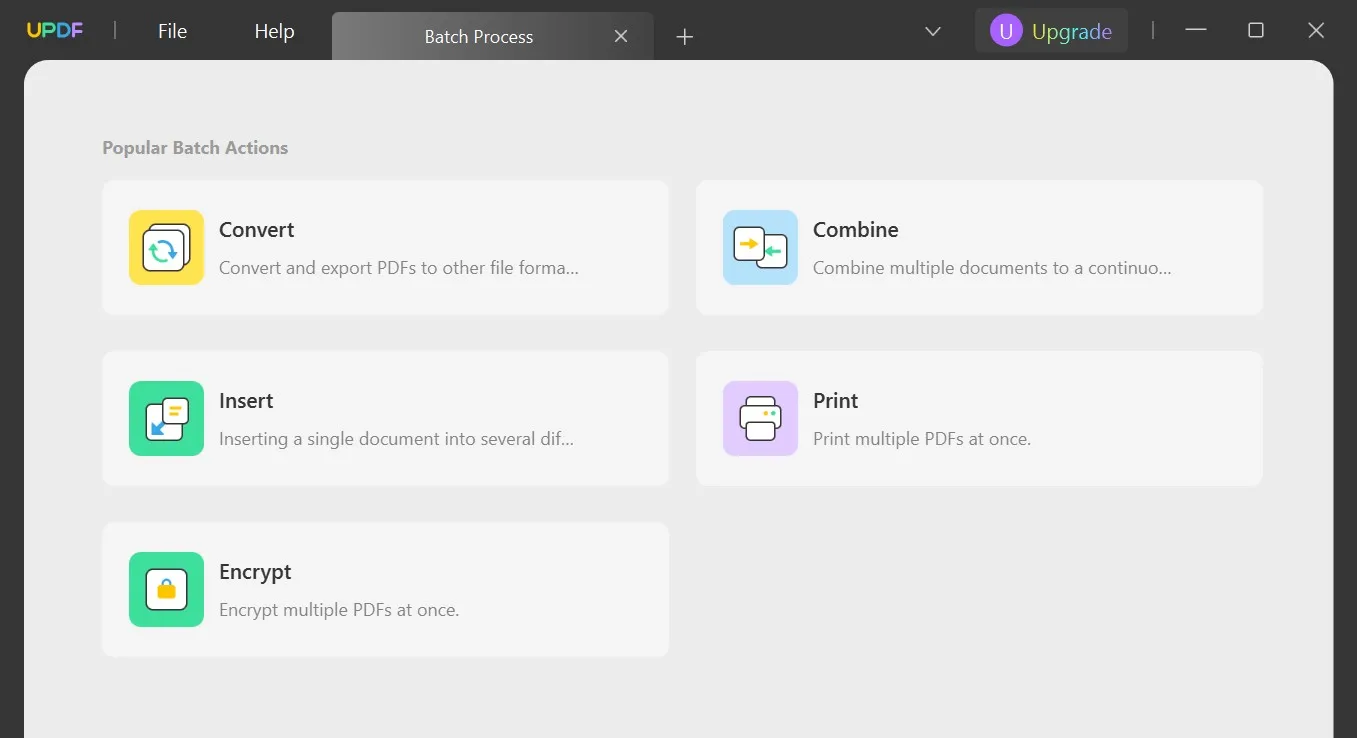
- Documentos escaneados con OCR: la herramienta proporciona tecnología OCR que puede convertir archivos PDF escaneados en texto que se puede buscar y editar . Esto puede ser especialmente útil cuando se trata de grandes volúmenes de documentos escaneados durante las horas de trabajo.
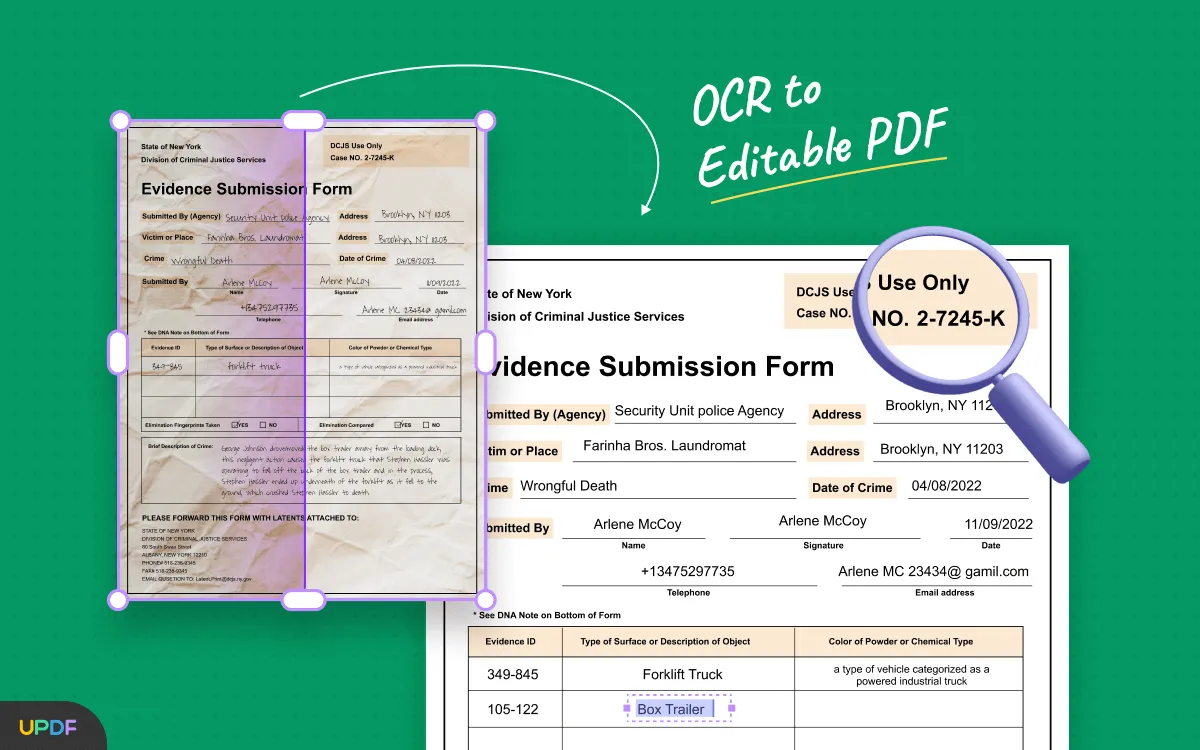
- Anotaciones y comentarios: proporciona una variedad de herramientas de anotación y comentarios, que incluyen resaltar, subrayar, tachar y más. Estas características facilitan que los equipos colaboren en documentos PDF, revisen y proporcionen comentarios.
- Edite documentos oficiales: con esta herramienta PDF ultrarrápida, puede editar sus documentos PDF sin preocuparse por dañar la calidad del documento o alterar el formato del documento. Puede hacer que su documento sea completamente editable, lo que significa que puede editar todo el texto , las imágenes y los enlaces presentes en su archivo PDF.
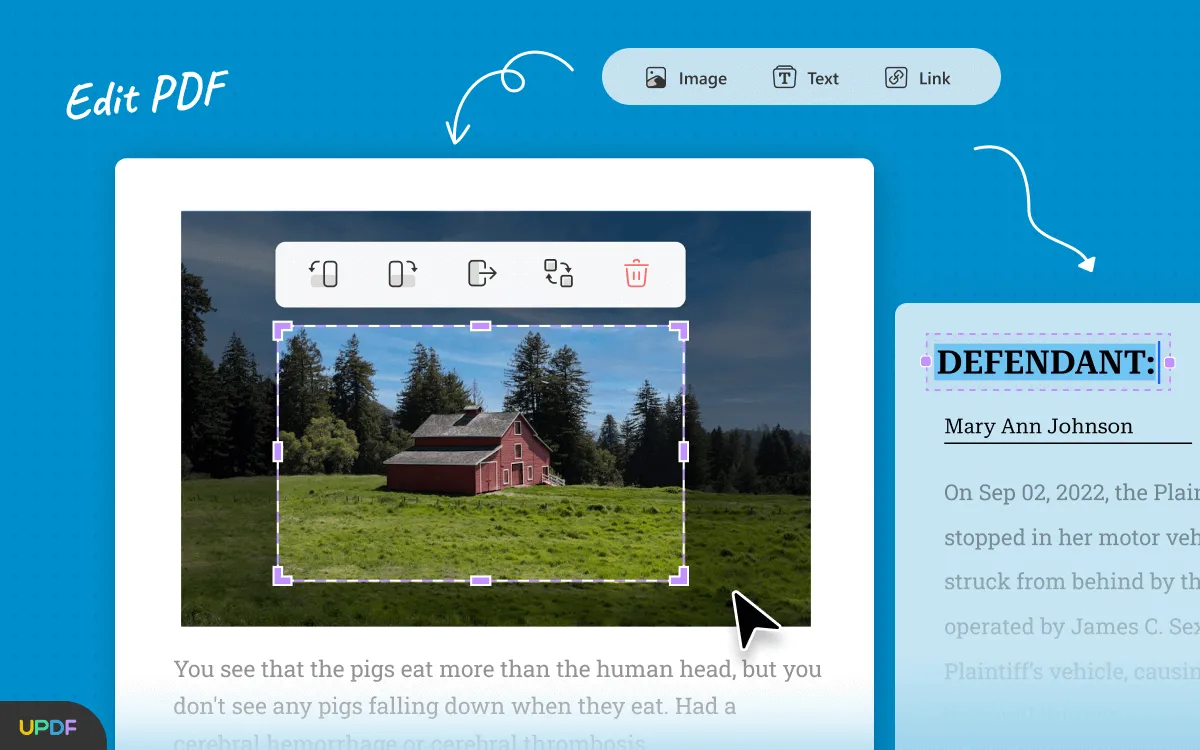
Conclusión
Aprender a concentrarse mejor mientras se estudia y mantenerse enfocado en el trabajo es esencial para lograr el éxito tanto en el ámbito académico como en el profesional. Requiere una combinación de autodisciplina, organización y la implementación de estrategias efectivas.
Es importante recordar que la concentración es una habilidad que se puede desarrollar y mejorar con el tiempo. Además, tómese el tiempo de probar UPDF para administrar sus tareas con más productividad con un 58 % de descuento en educación.
Windows • macOS • iOS • Android 100% Seguro
 UPDF
UPDF
 UPDF para Windows
UPDF para Windows UPDF para Mac
UPDF para Mac UPDF para iPhone/iPad
UPDF para iPhone/iPad UPDF para Android
UPDF para Android UPDF AI ONLINE
UPDF AI ONLINE UPDF Sign
UPDF Sign Editar PDF
Editar PDF Anotar PDF
Anotar PDF Crear PDF
Crear PDF Formulario PDF
Formulario PDF Editar enlaces
Editar enlaces Convertir PDF
Convertir PDF OCR
OCR PDF a Word
PDF a Word PDF a imagen
PDF a imagen PDF a Excel
PDF a Excel Organizar PDF
Organizar PDF Combinar PDF
Combinar PDF Dividir PDF
Dividir PDF Recortar PDF
Recortar PDF Girar PDF
Girar PDF Proteger PDF
Proteger PDF Firmar PDF
Firmar PDF Redactar PDF
Redactar PDF Desinfectar PDF
Desinfectar PDF Eliminar seguridad
Eliminar seguridad Leer PDF
Leer PDF UPDF Cloud
UPDF Cloud Comprimir PDF
Comprimir PDF Imprimir PDF
Imprimir PDF Proceso por lotes
Proceso por lotes Sobre UPDF IA
Sobre UPDF IA Soluciones de UPDF IA
Soluciones de UPDF IA Guía de Usuario de IA
Guía de Usuario de IA Preguntas frecuentes sobre UPDF IA
Preguntas frecuentes sobre UPDF IA Resumir PDF
Resumir PDF Traducir PDF
Traducir PDF Chat con PDF
Chat con PDF Chat con imagen
Chat con imagen PDF a Mapa Mental
PDF a Mapa Mental Chat con IA
Chat con IA Explicar PDF
Explicar PDF Investigación académica
Investigación académica Búsqueda de documentos
Búsqueda de documentos Corrector de IA
Corrector de IA Redactor de IA
Redactor de IA Ayudante de tareas con IA
Ayudante de tareas con IA Generador de cuestionarios con IA
Generador de cuestionarios con IA Solucionador de Matemáticas IA
Solucionador de Matemáticas IA PDF a Word
PDF a Word PDF a Excel
PDF a Excel PDF a PowerPoint
PDF a PowerPoint Guía del Usuario
Guía del Usuario Trucos de UPDF
Trucos de UPDF Preguntas Frecuentes
Preguntas Frecuentes Reseñas de UPDF
Reseñas de UPDF Centro de descargas
Centro de descargas Blog
Blog Sala de prensa
Sala de prensa Especificaciones Técnicas
Especificaciones Técnicas Actualizaciones
Actualizaciones UPDF vs. Adobe Acrobat
UPDF vs. Adobe Acrobat UPDF vs. Foxit
UPDF vs. Foxit UPDF vs. PDF Expert
UPDF vs. PDF Expert

